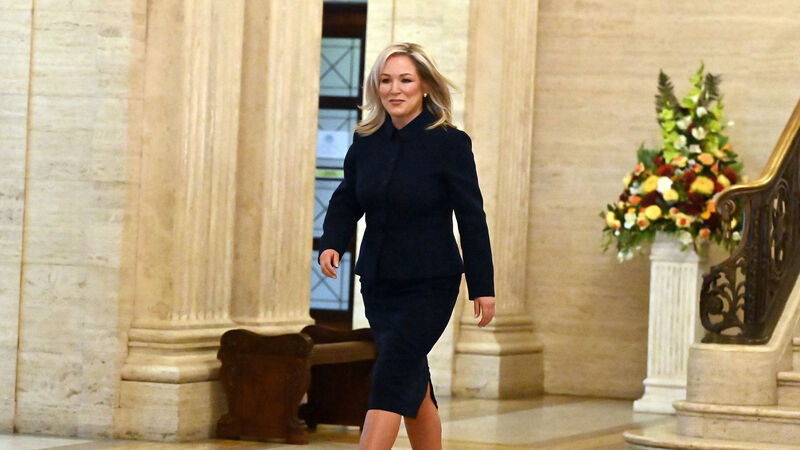Michelle O’Neill appointed as Northern Ireland’s First Minister

Sinn Féin Vice President Michelle O’Neill in the Great Hall at Parliament Buildings at Stormont, before a sitting of the Northern Ireland Assembly Picture: PA
Stormont’s first nationalist First Minister Michelle O’Neill has pledged to work with unionists to build a better future for Northern Ireland.
The appointment of the Sinn Fein vice president provided a moment of history on the day the powersharing institutions returned after a two-year hiatus.













